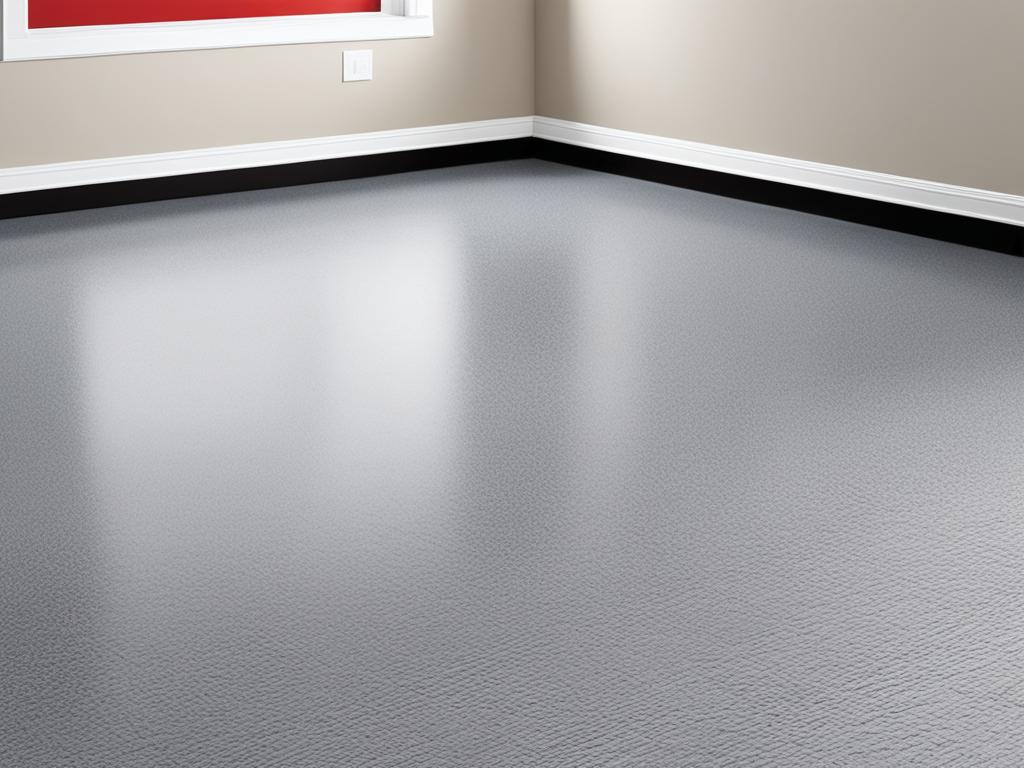Choosing the right flooring for your home is a decision that can greatly impact the overall aesthetic and functionality of your space. Two popular options homeowners often consider are HDPC (high density polymer composite) and LVP (luxury vinyl plank).
HDPC and LVP have their own unique features and benefits, making it important to understand the differences between these flooring options before making a final decision.
Key Takeaways:
- HDPC and LVP are popular flooring choices for homeowners.
- HDPC offers benefits such as durability, scratch resistance, and waterproof properties.
- LVP is known for its affordability, comfort underfoot, and versatility in design options.
- Consider the specific needs of your space and personal preferences when determining which flooring option is best for you.
Pros and Cons of HDPC Flooring
When it comes to choosing the right flooring for your home, HDPC (High Density Plastic Composite) is a popular option that offers several advantages. Let’s explore the pros and cons of HDPC flooring and why it stands out compared to Luxury Vinyl Plank (LVP) alternatives.
Advantages of HDPC over LVP:
- High Durability: HDPC flooring is highly durable and scratch-resistant, making it ideal for high foot traffic areas in your home.
- Complete Waterproofing: HDPC floors are completely waterproof through the entire thickness. This feature sets them apart, making them perfect for moisture-prone areas such as bathrooms, basements, and kitchens.
- Dimensional Stability: HDPC floors are designed to be dimensionally stable, meaning they do not expand or contract with changes in humidity and temperature. This stability ensures a long-lasting and reliable flooring option.
- Realistic Visuals: HDPC flooring offers a wide variety of colors and styles, with a realistic wood-like appearance. This allows you to achieve the desired aesthetic for your living spaces while enjoying the benefits of a durable and waterproof flooring solution.
Drawbacks of HDPC Flooring:
While HDPC flooring provides numerous benefits, it’s important to consider the potential drawbacks as well:
- Cost: HDPC flooring tends to be more expensive compared to other options like LVP. This higher cost may be a limiting factor for homeowners on a budget.
- Installation Complexity: HDPC flooring installation can be more complex compared to LVP. It often requires professional expertise to ensure that it is properly installed, adding to the overall cost.

Despite these few drawbacks, HDPC flooring remains a popular choice for many homeowners due to its durability, waterproof properties, and realistic visuals. Remember to weigh the pros and cons carefully to make an informed decision that aligns with your budget and specific flooring needs.
Pros and Cons of LVP Flooring
LVP flooring, also known as luxury vinyl plank flooring, has gained popularity among homeowners due to its numerous advantages. One of the main benefits of LVP flooring is its soft and comfortable underfoot feel. Walking on LVP floors provides a bouncy sensation, making it pleasant for everyday use. Additionally, LVP is excellent at absorbing impact noise, reducing sound transmission and ensuring a quieter environment in your home.
A significant advantage of LVP flooring is its affordability. Compared to HDPC or natural hardwood, LVP is a budget-friendly option for homeowners. This cost-effectiveness allows you to achieve the aesthetic appeal of hardwood or stone without breaking the bank. LVP flooring comes in a wide variety of wood, tile, and stone visuals, providing you with versatile design options to suit your personal style and preferences.
Another notable feature of LVP flooring is its exceptional resistance to moisture, scratches, stains, and water damage. This makes it a durable choice for areas prone to spills and moisture, such as kitchens, bathrooms, and basements. With LVP, you can have peace of mind knowing that your floors will withstand everyday wear and tear while maintaining their beauty for years to come. However, it is worth considering that LVP flooring may have some drawbacks, including a shorter lifespan compared to natural hardwood and the potential for the wear layer to fade or scratch over time.
In conclusion, LVP flooring offers homeowners several advantages that make it an attractive option for their homes. It provides a soft and comfortable underfoot experience, is budget-friendly, and offers versatile design options. Moreover, its resistance to moisture, scratches, and stains make it an ideal choice for high-moisture areas. However, it is important to understand that LVP flooring may have some drawbacks, such as a shorter lifespan compared to natural hardwood. By considering the pros and cons, you can make an informed decision on whether LVP flooring is the right choice for your home.
